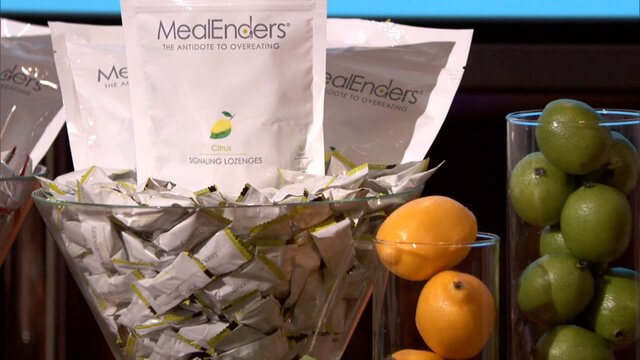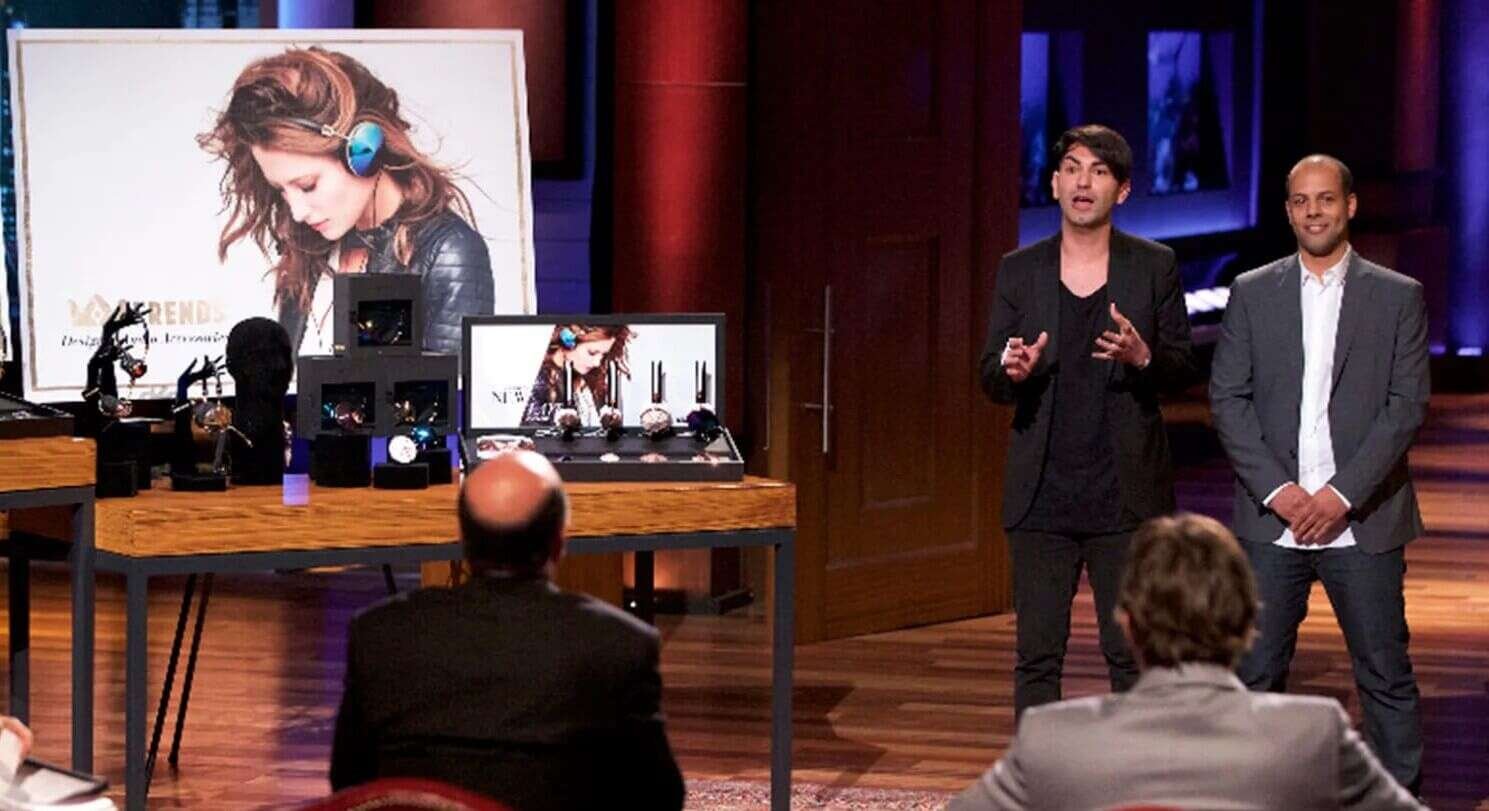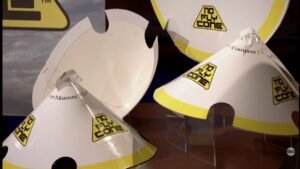Let’s kill a classic Shark Tank myth: They got a deal, so their problems are over. Hard no. Sometimes that deal barely closes. Sometimes founders lose their edge post-show. But sometimes, you spot a hustle that’s more movement than fad. That’s what landed KENT on my radar—compostable underwear, a gutsy duo, and a pitch that checked the right boxes. But does KENT have long-term teeth or was this just one more flashy pitch for the reel? Let’s break it down, street-smart style, one layer at a time.
Who’s Behind KENT? The Founders and Why Their Grit Matters
You want hustle? Look at Stacy and Jeff Grace, the couple running KENT. Stacy’s a sustainability pro, and Jeff’s her partner in grind. They didn’t just slap an eco label on cotton panties and call it innovation. The Graces built KENT from the ground up—testing fabrics, analyzing waste, and chasing a product that won’t outlive us in a landfill.
Why does it matter? Simple: sustainable fashion isn’t for the half-hearted. You fight for every margin and every customer. These founders lived the pain we all know—bootstrapping, convincing skeptics, and eating ramen while you wait out a retail buyer’s call. I’ve seen founders chase trends; the Graces are in it for the stupid hard stuff that changes industries.

The Big Pitch: Season 14’s Compostable Curveball
Let’s get to the Shark Tank action. Season 14, Episode 1: Stacy and Jeff pitched KENT underwear—100% plant-based, 100% compostable, absolutely no microplastics. They walked in asking for $200,000 for 5% of the business. That’s a bold $4 million valuation for any above-breakeven startup, even in this green-minded market.
The setting? Prime time with a live audience. Nerves? Sure, but they stayed sharp. The ask wasn’t just for cash—it was about validation and a ticket to a bigger platform. Stacy’s pitch hit home: Millions of pounds of underwear hit landfills every day. Ours turns into fertilizer.
I’ve seen founders crumple under Shark questions. The Graces had answers, and more importantly, they had receipts. They pulled in a projected $500,000 revenue for 2022, and had just locked down a launch in Nordstrom—a retail win that instantly turns heads.
Valuation Wars: KENT’s Net Worth After the Camera Cuts
Let’s be brutally honest—founders almost always overvalue. Why? Because it’s their baby. KENT’s $4 million valuation out the gate wasn’t insane in this eco era, but it was aggressive with slim profits. The Sharks saw it, and the numbers games started.
Barbara Corcoran fired first, slashing the founder’s ask to $200,000 for a whopping 20%. That’s the Sharks smelling blood—or at least seeing the risk. Lori Greiner and Robert Herjavec offered $200,000 for 15%. Daymond John circled, matched the 15%, and used his FUBU credentials as bait.
In the end, KENT took Daymond’s offer—$200,000 for 15%, dropping that dream valuation down to about $1.33 million. Not a humiliation, just reality. I’ve watched founders get too greedy and end up with nothing. KENT’s play? They read the room and chased the right partner, not the prettiest number. Smart move.
Shark Reactions: Who Bit, Who Balked, and Why
Let’s call the roll. Mark Cuban bounced early. Why? Small market size—he’s right, sort of. The eco-underwear play is niche compared to, say, tech or DTC socks.
Barbara Corcoran, Lori Greiner, and Robert Herjavec all threw out serious offers, but with heavier equity demands. Daymond John wavered but knew retail and fashion. Stacy and Jeff wanted him, plain and simple. The Sharks saw a mission, but they also saw a thorny retail path and narrow margins. It’s the classic Shark Tank tension—good cause, tough economics.
So, did KENT get fawned over like Scrub Daddy? Not exactly. But where there’s hesitation, there’s usually honesty. Lori and Robert saw something worth betting on, but the margins and high retail price were hurdles.
My take: this was not a tech unicorn pitch. It was genuine innovation in a hard category—sometimes that’s even harder to sell. But in the real world, change-makers don’t always get the cleanest hands.

KENT’s Product: Compostable Is Cool, But Is It Selling?
Let’s strip away the greenwashing. KENT’s underwear is 100% plant-based—no polyester, no plastics, no landfill trail. Toss a pair in your compost, wait a few months, and you get fertilizer. It’s not just a feel-good slogan; it’s a tangible solution.
The challenge? Each pair coasts between $20–$24. That’s steep compared to a $4 value-pack from a big box store or even comfort-first disruptors like MeUndies. But here’s the real deal—KENT isn’t aiming for everyone. They’re selling to eco-committed consumers who want sustainability everywhere, even in their basics drawer.
Does it work? KENT was breaking even at the pitch—so not losing, but not printing money. Retailers like Nordstrom jumping in gives the play a little Bombas-style momentum. But, in fashion, margins get eaten by middlemen, shipping, and fickle trends. If the Graces can cut costs or build loyalty, they’ll stick. If not, those $20 undies could become a hard sell.
After the Tank: Did KENT’s Momentum Stick?
Here’s what matters after the music fades—did Shark Tank actually move the needle?
Post-show, KENT didn’t disappear like so many I got a deal one-hit wonders. They nailed their Nordstrom retail launch. Revenues stayed on a slow upward track, especially after the boost in visibility. No massive layoffs, no social signs of panic. That tells me they’re paying their suppliers and moving units.
Is it Hockey Stick growth? Not yet. But KENT wasn’t made for quick-flip investors. They’re holding tight to their message and pressing on retail and online channels. If you want viral CPG like Scrub Daddy, look elsewhere. If you want relentless, mission-focused scaling, these are your people.
Road Ahead: Where Does KENT Go From Here?
If you’re betting on KENT long-term, you’re betting they turn compostable basics into something bigger. Lori Greiner pressed for a move into t-shirts—a natural next step. Product expansion is coming. If they can keep their sustainability promise at a price point that doesn’t choke their growth, they win.
The Nordstrom deal lowers barriers to broader retail. Still, DTC (direct-to-consumer) is probably their bread and butter for now. The risk? Bigger brands will see their lane and jump in, possibly undercutting with semi-sustainable lookalikes.
But here’s where KENT’s got an edge—authenticity. They weren’t green before it was cool. They are green for real. As macro trends shift and eco-legislation tightens, brands like KENT could ride a bigger wave. Or, if they stumble on costs, they’ll remain cult-favorite, not mainstream hit.
Conclusion: Real Movement or Noise?
So, is KENT crushing it or just crossing its fingers? Here’s how I read it: KENT isn’t a press-release company. They built from the grind up, scored a legit investor (Daymond John), and keep adding legit retail partners. Sizzle-only startups fizzle. These two have a shot at real longevity—if they keep innovating and don’t blink.
Their growth is proof that doing good can sell—at least to the right buyer. The numbers are still small compared to veteran startup beasts, but the story’s far from over. If you want to track eco-brands after Shark Tank, add KENT to your Real Watch list.
They’re still hustling. And in this game, survival’s the baseline for breakout.
FAQs
Is KENT from Shark Tank still in business?
Yes, KENT is still active and selling. Their Nordstrom partnership means their business is more than a Shark Tank blip.
How much revenue does KENT earn now?
At the time of their pitch (2022), revenues were around $500,000 per year. Shark Tank and retail moves likely boosted growth.
Did the Daymond John deal actually close?
Daymond John offered $200,000 for 15%, and the founders accepted on-air. Public records confirm ongoing involvement, but most details are private.
Where can I buy KENT underwear today?
You’ll find KENT at NKENT.co and in Nordstrom stores and online. Availability is growing as their retail footprint expands.
What materials does KENT use to make their underwear?
All KENT underwear is 100% natural, plant-based, fully compostable, and plastic-free—no synthetics or microplastics.
Has KENT expanded their product line beyond underwear?
As of early 2024, underwear is still the flagship. Insiders hint at future basics like t-shirts and socks in the pipeline.
Was the $200,000 investment enough to scale KENT?
It’s a solid boost, but not game-changing alone. The real value is Daymond’s retail guidance and Shark Tank’s brand exposure.
Is compostable underwear actually better for the environment?
If composted properly, yes. KENT’s formula breaks down in months—not centuries—cutting out plastic pollution and landfill waste.
For more real-deal Shark Tank stats and startup breakdowns, check out SharkWorth—where we track the real winners and warning signs after the cameras stop rolling. Stay sharp. Stay hustling.










